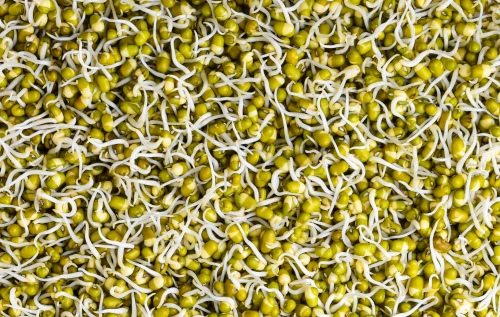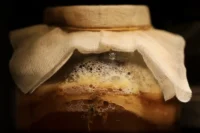
Going Outdoors During Winter – Here’s What You Need
Going Outdoors During Winter offers a unique and invigorating experience, allowing you to enjoy the serene beauty of snow-covered landscapes and the crisp, fresh air.

In an era where people are increasingly seeking healthier and more sustainable food options, the act of growing one’s own sprouts has gained significant popularity. Sprouts are young, tender plants that are bursting with nutrients, flavor, and culinary possibilities. Whether you have a spacious garden or a tiny apartment balcony, cultivating sprouts at home is a rewarding and accessible endeavor. In this article, we will delve into the numerous reasons why you should consider growing your own sprouts and how it can positively impact your health, well-being, and the environment. A sprouting jar will help you making your own sprouts.
Sprouts are tiny nutritional powerhouses packed with vitamins, minerals, enzymes, and antioxidants. As they germinate, sprouts experience an exponential increase in nutrient density, making them more potent than their mature counterparts. They are an excellent source of essential vitamins like vitamin C, A, and K, as well as minerals like iron, calcium, and magnesium. Additionally, sprouts contain enzymes that aid digestion and increase the bioavailability of nutrients, making them a valuable addition to a balanced diet.
rowing your own sprouts provides unparalleled convenience. Unlike other gardening endeavors, sprouts require minimal space, time, and effort. With just a few simple supplies, such as seeds, water, and a sprouting container, you can have a continuous supply of fresh, nutritious sprouts in a matter of days. This not only saves you money but also reduces reliance on store-bought produce that may have been harvested weeks ago and traveled long distances.
In an age where food miles and carbon footprints matter, growing sprouts at home offers an environmentally friendly alternative. By cultivating sprouts indoors, you eliminate the need for transportation and packaging associated with store-bought options. Furthermore, sprouts require minimal water compared to traditional crops, making them a sustainable choice for water conservation. Embracing the practice of home sprouting contributes to reducing the overall strain on the environment and fosters a more sustainable food system.
One of the joys of growing your own sprouts is the freedom to experiment with a wide range of flavors, textures, and culinary applications. From crunchy mung bean sprouts to delicate alfalfa sprouts and spicy radish sprouts, each variety adds a unique taste and texture to your meals. Sprouts can be incorporated into salads, sandwiches, wraps, stir-fries, smoothies, and even baked goods, elevating the nutritional profile and taste of your favorite dishes.
Growing sprouts provides an excellent opportunity for education, especially for children. It allows them to witness firsthand the marvels of nature and the transformative power of seeds. By involving kids in the sprouting process, they can develop a deeper appreciation for where food comes from and gain valuable gardening skills. This hands-on experience fosters a sense of connection with nature and encourages a healthier relationship with food.
Growing your own sprouts is a journey that rewards you with unparalleled nutritional benefits, sustainable practices, and culinary delights. The simplicity and accessibility of sprouting make it a perfect project for individuals with limited space, time, or gardening experience. Not only do home-grown sprouts provide a continuous supply of fresh and nutritious produce, but they also empower individuals to take control of their food choices and reduce their ecological footprint. So, why not embark on this nutritious and sustainable adventure by cultivating your very own sprouts at home? Your health, the environment, and your taste buds will thank you!

Going Outdoors During Winter offers a unique and invigorating experience, allowing you to enjoy the serene beauty of snow-covered landscapes and the crisp, fresh air.

In the world of food preservation, Mylar bags have become increasingly popular due to their durability and ability to protect food from environmental factors. While

Fermentation, an ancient method of food preservation and flavor enhancement, has experienced a resurgence in popularity in recent years. From tangy sauerkraut to fizzy kombucha,